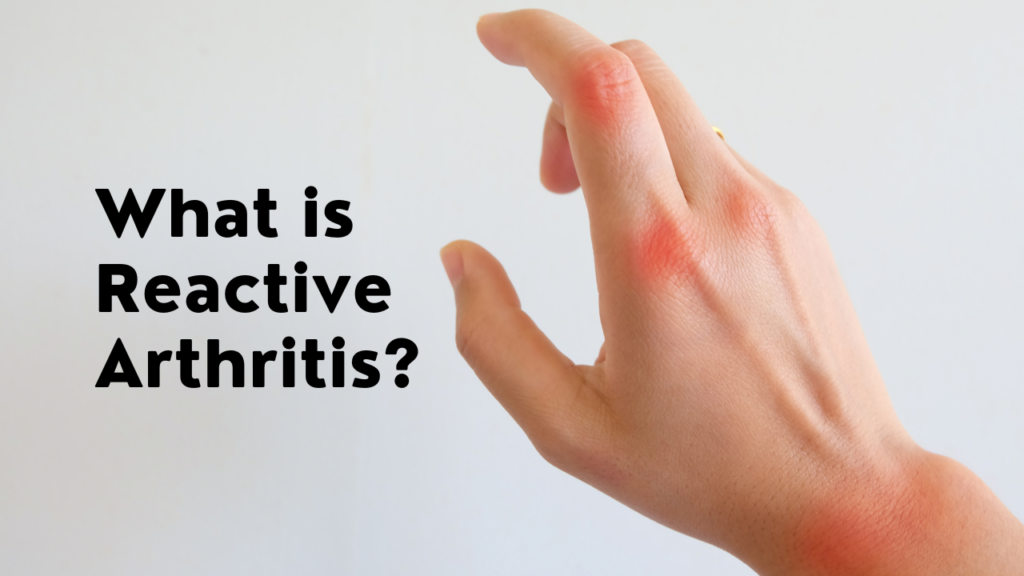Introduction
Reactive Arthritis, also referred to as “Reiter’s syndrome”, manifests as inflammatory joint disease triggered by infections, commonly in the genitourinary or gastrointestinal systems. Beyond joint pain, swelling, and stiffness, it may cause inflammation in the eyes, skin, and urinary tract. Named after Hans Reiter, it is associated with urethritis and conjunctivitis. Though typically resolving within a year, it can persist longer or present suddenly and severely. This condition, impacting individuals of all ages, including children, highlights the intricate interplay between infections and immune responses, necessitating comprehensive management approaches. Understanding its complexities aids in timely diagnosis and effective treatment strategies for those affected by Reactive Arthritis. Naturopathy in Centre Prayagraj offers holistic approaches to managing Reactive Arthritis, addressing symptoms and underlying complexities for effective treatment strategies.
Causes Of Reactive Arthritis
- Infection: Reactive Arthritis develops in response to an infection in a person’s body. When a person has an infection in their body, their immune system starts producing antibodies and other chemicals in the body to get rid of the infection germs such as bacteria, viruses, etc. which work to kill these bacteria. Once their immune system has dealt with the infection, fragments of these dead bacteria travel through the bloodstream to accumulate in the lining of a person’s joints. The person’s immune system then reacts by causing joint inflammation. Due to which there is swelling and burning in the joints. Reactive Arthritis triggered by infection prompts an immune response causing joint inflammation, effectively managed at the Ayurvedic treatment centre in Prayagraj.
- Bacterial Infection: Bacterial infections precipitate Reactive Arthritis, triggering inflammation in the body and leading to its development. These bacteria that infect the body include Chlamydia, Salmonella, Shigella, Yersinia, Campylobacter, and Clostridium difficult. Reactive Arthritis is caused by bacterial infections, which cause inflammation and lead to its emergence. An Ayurvedic doctor in Prayagraj can successfully manage it.
- Family History: Reactive Arthritis may have a hereditary component, with a family history potentially influencing its development. The presence of the HLA-B27 genetic marker is associated with an increased risk, suggesting genetic transmission between relatives is a contributing factor to the condition’s onset within families. The hereditary nature of Reactive Arthritis is linked to family history and the HLA-B27 genetic marker, emphasising the need of Ayurvedic hospitals in Prayagraj in addressing it.
- Age and Gender: Adults aged 20 to 40 are at the highest risk of developing Reactive Arthritis, highlighting a predominant age group affected. Although the disease is equally likely to develop in women and men due to food-borne infections, Women are more likely than males to develop Reactive Arthritis after being infected with sexually transmitted germs. Consult a doctor for joint pain in Prayagraj.
- Other Reasons: Additional factors contributing to Reactive Arthritis include urinary tract infection complications, calcium deficiencies, gastrointestinal issues, and more, potentially exacerbating its development.
Prevention From Reactive Arthritis
Reactive Arthritis can be prevented by lifestyle changes, maintaining hygiene, treating infections promptly, and keeping physically active. For this, you can keep some points in mind.
- One should avoid consuming contaminated food and water to avoid infection.
- If a person is at risk of developing Reactive Arthritis due to genetic factors, then one should protect themselves from exposure to the bacteria.
- A person should take full care of the cleanliness of his body and his surroundings so that infection can be avoided.
- A person should get themselves and their family members vaccinated to avoid certain bacteria.
- A nutritious diet, with plenty of fruits and vegetables strengthens the immune system of a person’s body.
- Regular walks, exercise, yoga, workouts, etc. help in keeping the body healthy.
Conclusion
Ayurvedic treatment targets inflammation, pain relief, and enhancing joint mobility to manage Reactive Arthritis effectively and naturally. Ayurvedic herbs are employed in treating Reactive Arthritis to alleviate symptoms and target the underlying cause of the condition effectively. Ayurveda will work with patients to develop a customized treatment plan based on their individual needs and symptoms such as Reducing joint pain, Swelling, and Inflammation, Improving immunity, Reducing fatigue, and lower back pain. A doctor for arthritis in Prayagraj offers a personalised approach to arthritis treatment.
